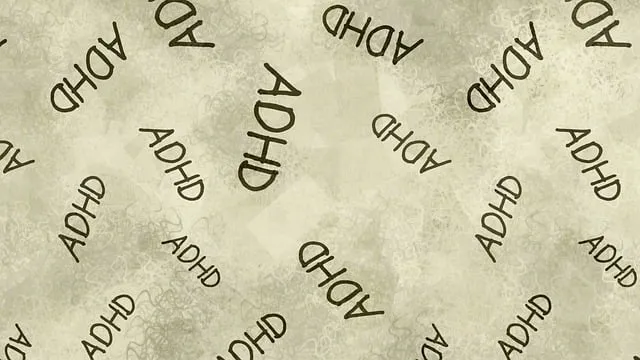Emotional Intelligence (EI), crucial for personal growth and improved relationships, is defined by the Parker Model's four components: Self-Awareness, Self-Management, Social Awareness, and Relationship Management. Parker Kaiser Permanente mental health locations integrate the Parker Model into cultural competency training, promoting emotional well-being through evidence-based practices like CBT and mindfulness. They emphasize self-awareness exercises and resilience to navigate life's challenges, reducing stigma around mental illness. Building empathy, as highlighted by experts at these locations, strengthens relationships and enhances communication in healthcare settings, contributing to improved patient outcomes and reduced burnout among professionals.
Emotional intelligence (EQ) is a powerful tool for personal and professional growth, enabling individuals to navigate complex relationships and challenges effectively. This article explores key aspects of EQ development, drawing insights from the Parker Model and practical tools offered by Kaiser Permanente Mental Health Locations. We delve into strategies for identifying and managing emotions, enhancing self-awareness, and building empathy, offering valuable guidance for anyone seeking to boost their emotional intelligence.
- Understanding Emotional Intelligence: The Parker Model
- Identifying and Managing Emotions: Tools from Kaiser Permanente Mental Health Locations
- Enhancing Self-Awareness: A Key Component of EQ Development
- Building Empathy: Connecting with Others Through Emotional Intelligence
Understanding Emotional Intelligence: The Parker Model

Emotional Intelligence (EI), a concept that has gained significant prominence in recent years, is not merely about understanding emotions; it’s about recognizing, managing, and leveraging them effectively for personal growth and improved relationships. The Parker Model, developed by Daniel Goleman and Robert C. Parker, offers a structured framework to understand EI. This model identifies four key components: Self-Awareness, Self-Management, Social Awareness, and Relationship Management.
At Kaiser Permanente mental health locations, the integration of the Parker Model into healthcare practices has become increasingly vital. It helps healthcare providers enhance their cultural competency training, enabling them to connect more deeply with patients from diverse backgrounds. Moreover, by promoting emotional well-being promotion techniques grounded in the Parker Model, these locations are fostering environments that support self-awareness exercises and encourage individuals to navigate life’s challenges with greater resilience and emotional intelligence.
Identifying and Managing Emotions: Tools from Kaiser Permanente Mental Health Locations

Identifying and managing emotions is a fundamental aspect of emotional intelligence development, and Parker Kaiser Permanente mental health locations offer valuable tools to support this journey. Through various therapeutic approaches, individuals can learn to recognize their emotional triggers and patterns. This process involves exploring feelings, understanding underlying causes, and cultivating awareness—essential skills for effective emotion regulation.
The mental health professionals at Kaiser Permanente provide a safe space for clients to express and process their emotions without stigma. They offer evidence-based practices, such as cognitive-behavioral therapy (CBT), mindfulness training, and empathy-building strategies, which have proven effective in managing conditions like anxiety and depression. These techniques not only help individuals gain control over their immediate emotional responses but also foster a deeper understanding of themselves, leading to improved mental well-being and reduced stigma surrounding mental illness.
Enhancing Self-Awareness: A Key Component of EQ Development

Enhancing self-awareness is a cornerstone in developing emotional intelligence (EQ). This involves recognizing and understanding your own emotions, strengths, weaknesses, values, and motivations. It’s akin to looking into a mirror—a process that can be facilitated through introspection, mindfulness practices, and feedback from others. At Parker Kaiser Permanente mental health locations, professionals emphasize the importance of self-awareness in building strong relationships with patients and colleagues, fostering effective communication, and making thoughtful decisions under pressure.
By increasing self-awareness, healthcare providers can better manage their emotional responses to challenging situations, such as those encountered while implementing Burnout Prevention Strategies for Healthcare Providers. This, in turn, contributes to improved mental wellness and stress reduction methods. Mentally robust professionals are better equipped to handle the hustle and bustle of patient care, ensuring they provide quality services without succumbing to the risks of burnout.
Building Empathy: Connecting with Others Through Emotional Intelligence

Building empathy is a crucial aspect of emotional intelligence that fosters meaningful connections with others, as highlighted by experts like Parker at Kaiser Permanente mental health locations. This involves understanding and sharing the feelings of those around us, which can significantly enhance our relationships and overall well-being. By practicing active listening, observing body language, and paying attention to verbal cues, individuals can develop a deeper sense of empathy. This skill is particularly valuable in healthcare settings where cultural competency training for mental health professionals is essential.
Empathy plays a pivotal role in effective communication, allowing healthcare providers to connect with patients from diverse backgrounds. It helps in understanding their unique perspectives and experiences, which is critical for delivering tailored care. Moreover, incorporating empathy into practice can enhance patient satisfaction and outcomes, as it forms the foundation for building trust and fostering an environment of open communication. Effective risk management planning for mental health professionals should include strategies to enhance cultural competency and empathy, alongside rigorous risk assessment processes.
Emotional intelligence, as highlighted by the Parker Model and practices from Kaiser Permanente mental health locations, is a multifaceted skill set that enriches personal and professional lives. By understanding emotions, managing them effectively, enhancing self-awareness, and building empathy, individuals can navigate relationships and challenges with greater ease. This article has explored these key components, offering practical tools for developing emotional intelligence. Incorporating these strategies into daily life can lead to improved communication, stronger connections, and better decision-making—all contributing to a more balanced and fulfilling existence.






